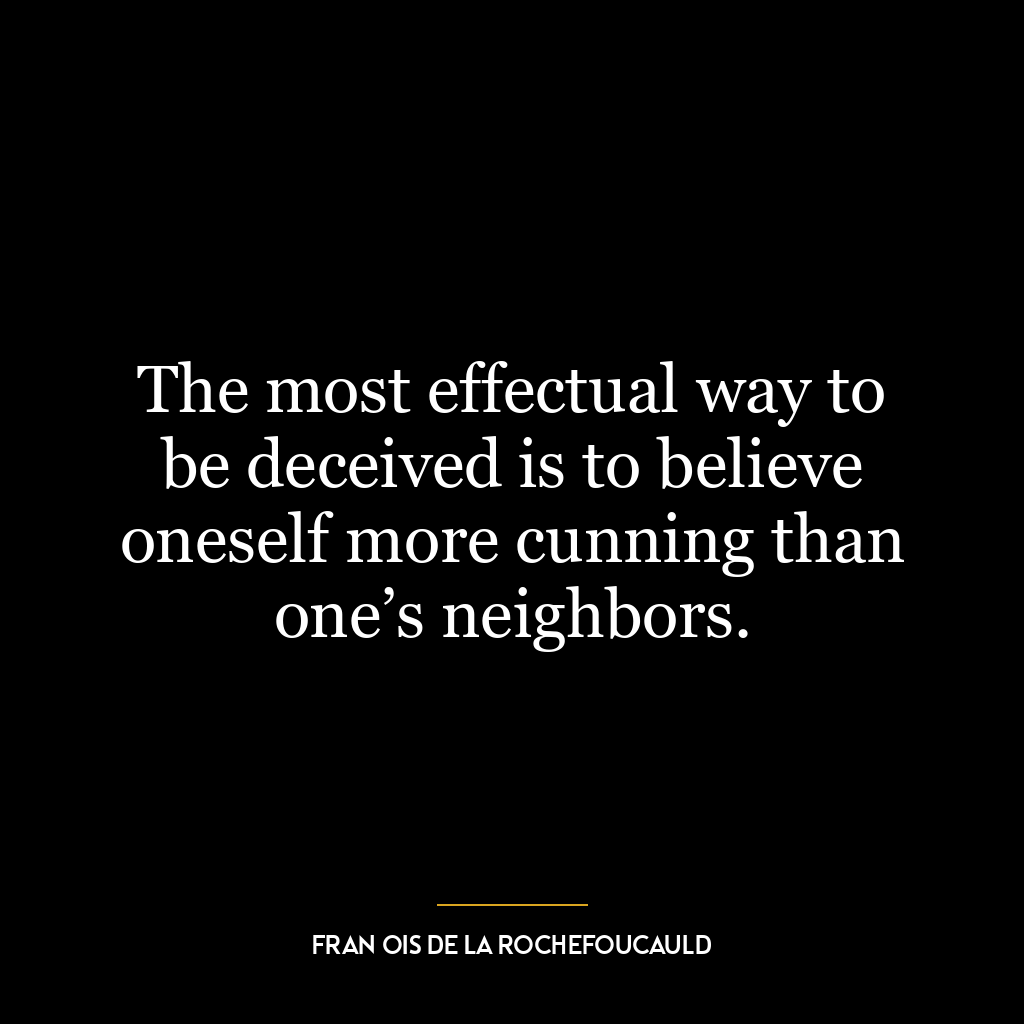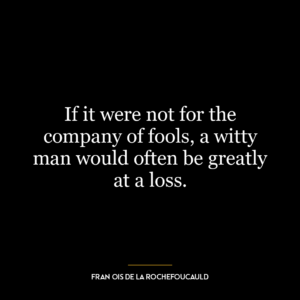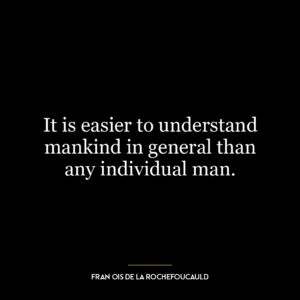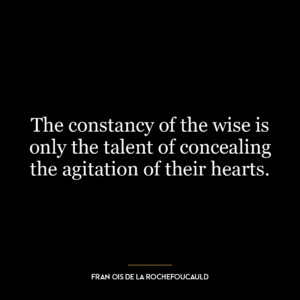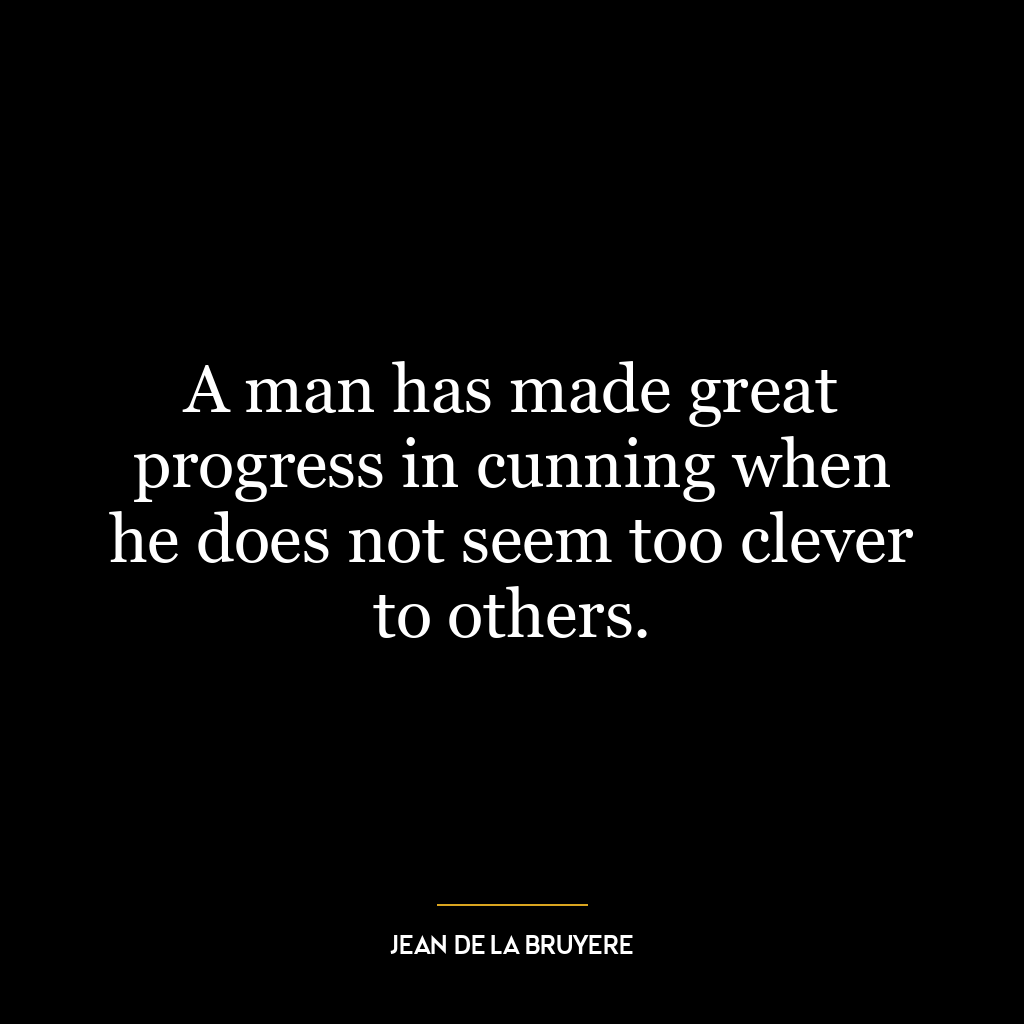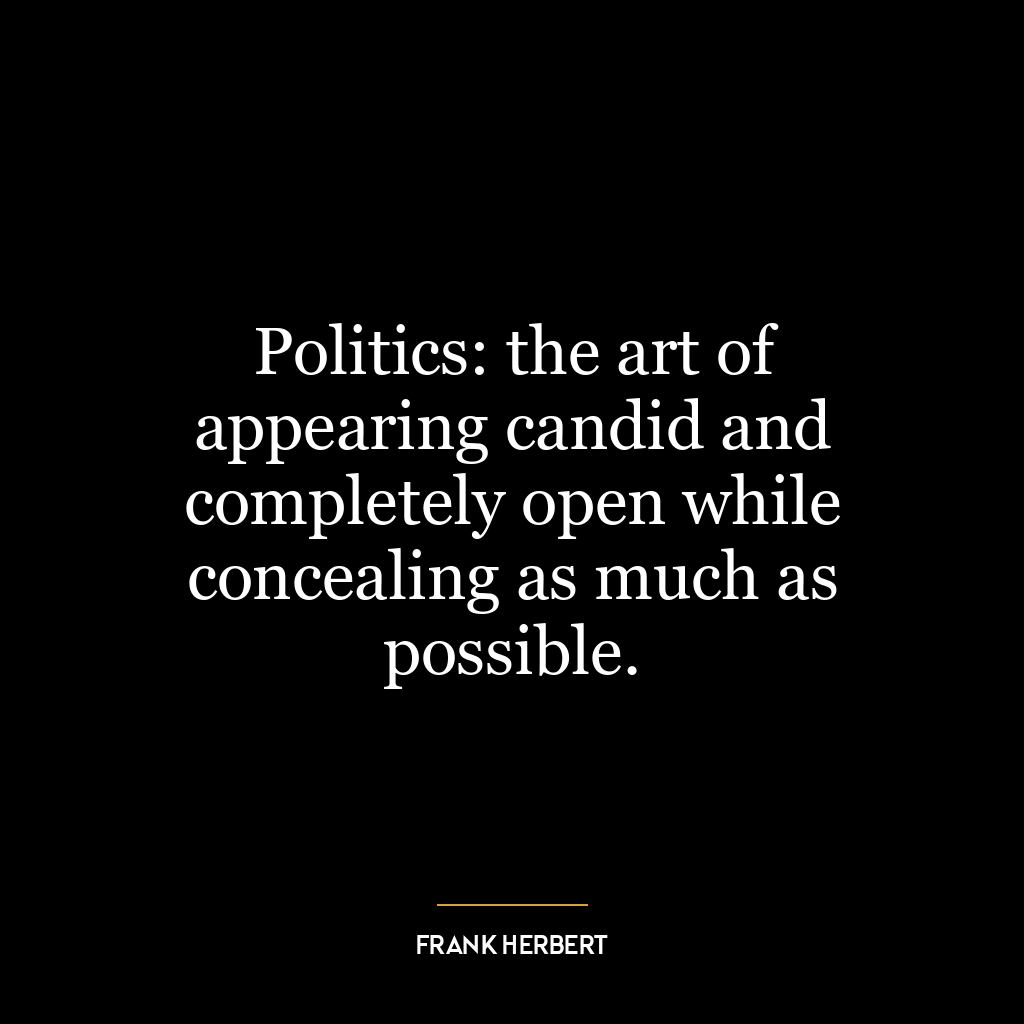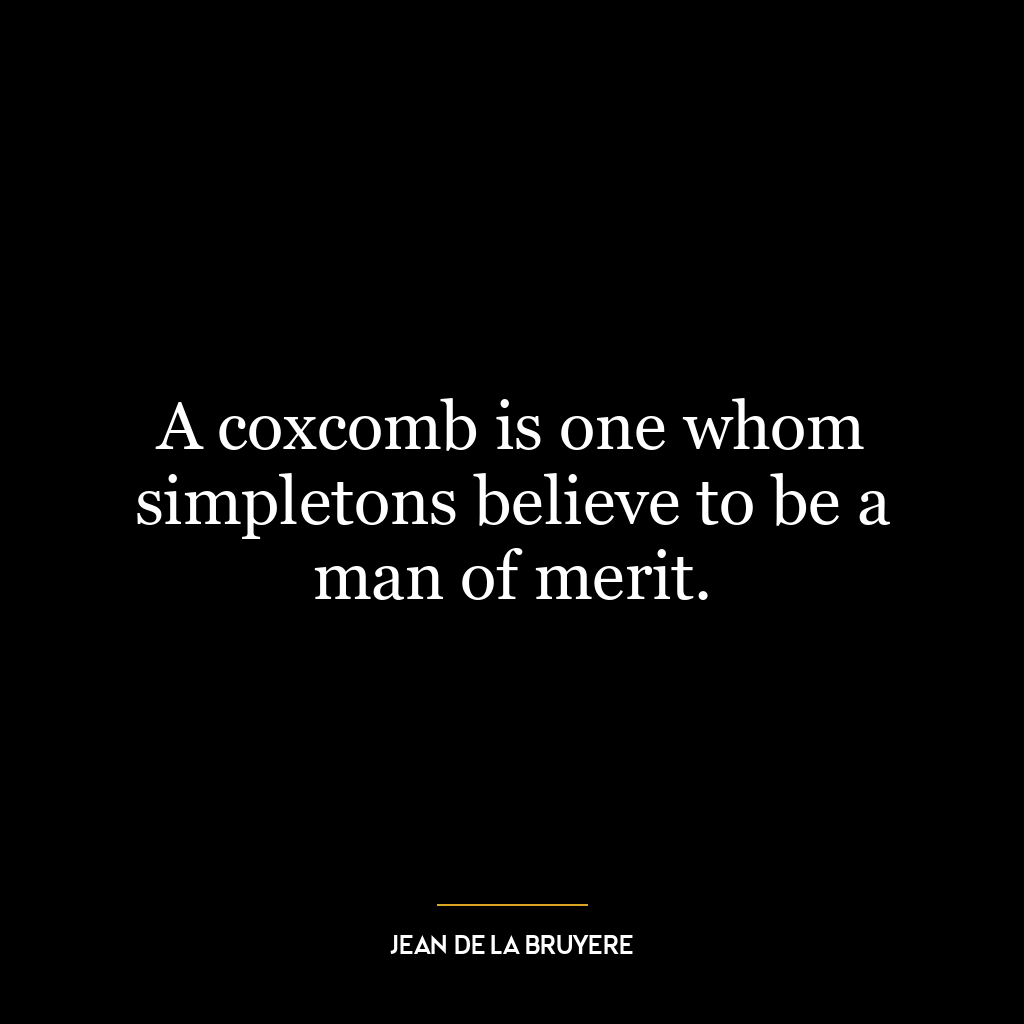This quote suggests that the most effective way to be fooled is by overestimating one’s own cleverness or intelligence while underestimating those around them. It’s a critique of arrogance and a warning against the dangers of overconfidence. When we believe we’re smarter or more cunning than others, we let our guard down, making it easier for others to deceive us. We might miss the signs of deception because we’re so sure of our own superiority.
In terms of depth, this quote also delves into the human psyche and our perceptions of ourselves versus others. It highlights the danger of ego, the illusion of superiority, and the inherent vulnerability that comes with such self-deception. It’s a reminder that our self-perception can be our own worst enemy, leading us down a path of delusion and deceit.
Applying this idea to today’s world, we can see examples of this in politics, business, and even in our personal relationships. Politicians who believe they are more cunning than their opponents often underestimate them and end up being outsmarted. Businesses that underestimate their competition often lose their market share. In personal relationships, those who believe they are more intelligent than their partners often end up being deceived.
In terms of personal development, this quote serves as a reminder to always stay humble and keep learning. Overconfidence can blind us to our own shortcomings and prevent us from growing. By acknowledging that we don’t know everything and that others may be more knowledgeable or skilled in certain areas, we open ourselves up to learning and personal growth. We also become less susceptible to deception because we’re more aware of our own limitations and more open to the insights and perspectives of others.

